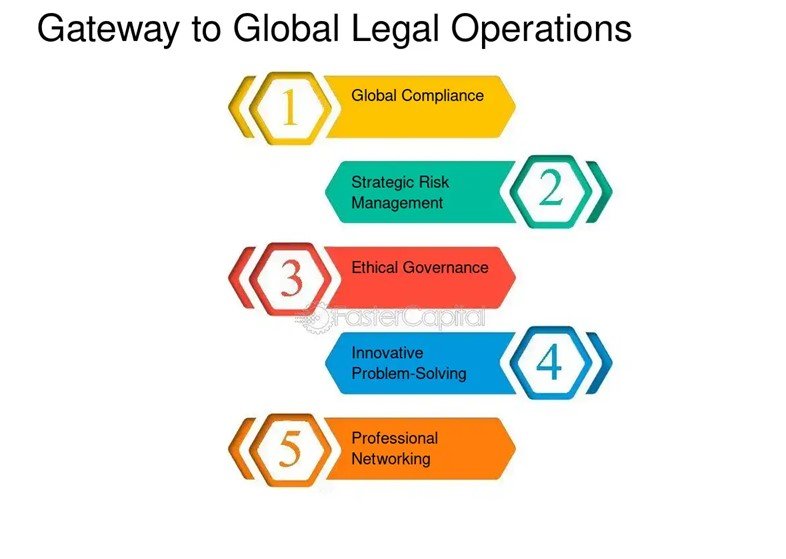Once we are done with our schools and colleges, we know that it is now time to step into the real world where everyone is putting their efforts to have a fulfilling life, but how is it possible? Well! The first important thing to work upon is to have a stable career that is well reputed and financially fit.
Whether you’re a student who just finished school, a graduate exploring career paths, or a professional looking to upskill, ACCA can be your stepping stone to a remarkable and fulfilling journey. Read more to know about the ACCA course, ACCA curriculum, ACCA fees Structure, and other important details.
Why ACCA is a Wonderful Course
There are many reasons why ACCA is considered a fantastic course:
- ACCA has no foundation in the time that you take to complete the syllabus for preparing for the exams, you can study fulltime, you can have a job and still study, you can study through any mode.
- The ACCA syllabus is not just about accounting. It covers a wide range of subjects like management, law, ethics, taxation, and strategic business leadership.
- ACCA places strong focus on ethical responsibility and corporate ethics. This ensures that ACCA members not only have the skills learnt from the course but also the ethical mindset to lead businesses responsibly.
Eligibility for ACCA
- You can start your ACCA journey after completing your Class 12 (10+2) in commerce, with English and Math/Accounts as main subjects. Graduates in commerce and professionals like CA students or semi-qualified CAs can also apply. In fact, exemptions are available for those who have already studied certain subjects during their degree or CA course, helping them skip some ACCA exams.
- Next thing is to fill out the ACCA form to officially enrol in the course and payment of fees, the ACCA fees structure is a three-step model that includes payment of enrolment fees, subscription fees, and then the respective exams fees
- You can take classes from Zell Education to prepare for the ACCA exams; they will also streamline your registration process for the ACCA course.
Structure of the ACCA Course
The ACCA qualification consists of three levels, with a total of 13 papers (exams) to complete. The ACCA syllabus gives a holistic view and covers all the important aspects of the accounting and taxation specifics:
1. Applied Knowledge (3 Papers)
This is the beginner level, building foundational knowledge.
- Business and Technology
- Management Accounting
- Financial Accounting
2. Applied Skills (6 Papers)
This level goes deeper into core subjects needed in a finance or accounting job.
- Corporate and Business Law
- Performance Management
- Taxation
- Financial Reporting
- Audit and Assurance
- Financial Management
3. Strategic Professional (4 Papers)
This is the final level where you develop strategic thinking and leadership qualities.
Essentials (Compulsory):
- Strategic Business Leader
- Strategic Business Reporting
Options (Choose any two):
- Advanced Financial Management
- Advanced Performance Management
- Advanced Taxation
- Advanced Audit and Assurance
ACCA Subjects and Syllabus
Let’s look at the ACCA syllabus and what they cover in brief:
Applied Knowledge Level
- Business and Technology: Introduction to how businesses work, management, governance, and the role of accounting in organizations.
Management Accounting: Costing techniques, budgeting, and performance evaluation.
- Financial Accounting: Basic principles of accounting, preparation of financial statements.
Applied Skills Level
- Corporate and Business Law: Understanding of laws related to business, contracts, and companies.
- Performance Management: Decision-making using cost and performance information.
- Taxation: Tax laws in order to calculate the final tax figures,
- Financial Reporting: Preparing the books of accounts for the companies.
- Audit and Assurance: Checking the accounts and financial statements prepared by the company.
- Financial Management: Investment appraisal, business finance, risk management.
Strategic Professional Level
- Strategic Business Leader: Real-life business leadership scenarios, strategy, and ethical judgment.
- Strategic Business Reporting: Advanced financial reporting and analysis.
Optional Papers (Choose 2 based on career path):
- AFM: Investment decisions, mergers, and risk management.
- APM: Performance evaluation and strategic planning.
- ATX: In-depth tax planning and advisory.
- AAA: Advanced auditing, ethics, and professional judgments.
How Long Does It Take to Complete ACCA?
Generally, it takes around 2-3 years to complete the ACCA qualification, although along with that what matters is that you should be able to complete the syllabus in minimum time, so that you can appear for the exams.
Career Opportunities After ACCA
An ACCA qualification can land you jobs such as:
- Financial Analyst
- Tax Consultant
- Internal Auditor
- Risk Manager
- Business Consultant
- Finance Manager
- CFO or Finance Director
You can work in big multinational companies, in big accounting firms, you have flexibility in switching jobs, and you can have the best professional life.
ACCA is definitely more than just a title to your name, it is about equipping the best possible skills, a career that is financially stable and well-respected, it is about a strategic mind creating ideas to take you to an exciting career ride.
Refresh Date: August 30, 2025








